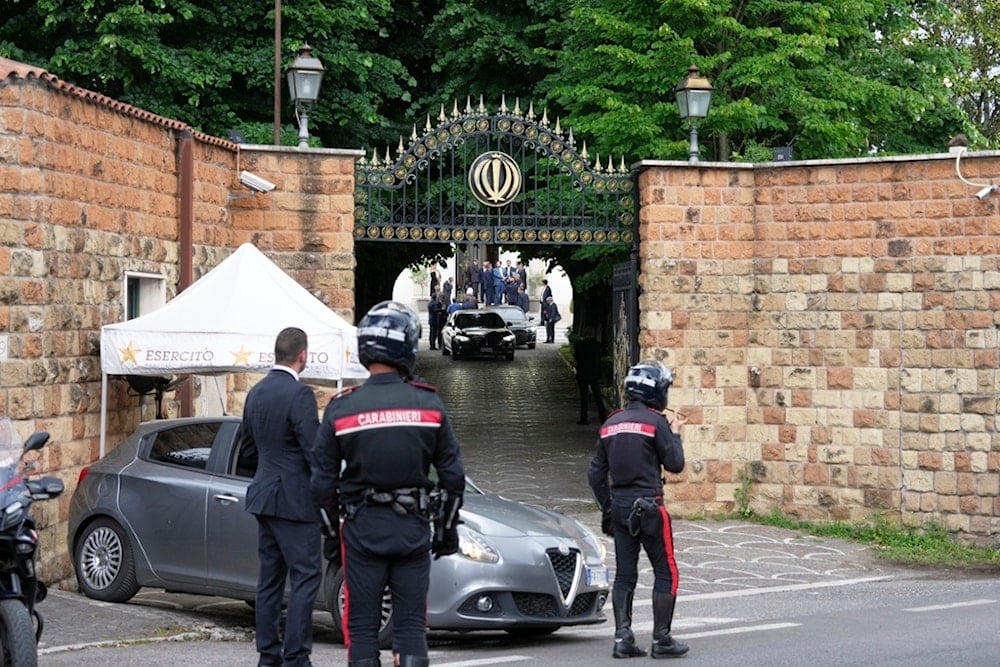Europe may restore UN sanctions on Iran if nuclear deal fails
A French source says European powers could reimpose UN sanctions on Iran if no nuclear deal secures European interests ahead of a French-British summit.
-

Iranian delegates leave the Iranian Embassy in Rome after a closed-door meeting at the Omani Embassy with a US delegation to discuss Tehran's nuclear program, Friday, May 23, 2025 (AP)
A French diplomatic source warned on Tuesday that European powers would be compelled to restore United Nations sanctions on Iran if no nuclear agreement is reached that guarantees European security interests.
The remarks came shortly after a phone call between French Foreign Minister Jean-Noël Barrot and his British counterpart David Lammy, ahead of an upcoming Franco-British summit.
According to the source, the message from both sides was clear: if diplomacy fails to deliver a nuclear deal that reassures European states, the snapback mechanism, which would automatically reinstate UN sanctions, remains on the table.
This comes after Iranian Foreign Minister Abbas Araghchi accused the Israeli regime of deliberately sabotaging a promising diplomatic track between Tehran and Washington, warning that further escalation could risk a region-wide war while calling on the US to prioritize diplomacy over "foreign entanglements."
'Israel' derailed diplomatic track
In a Financial Times opinion piece published Tuesday, Araghchi revealed that five recent meetings with US Special Envoy Steve Witkoff had produced more tangible results than years of previous negotiations under the Biden administration. These discussions, he said, focused not only on uranium enrichment and nuclear safeguards but also on broad economic cooperation, which he described as a "trillion-dollar opportunity" for both countries.
“We were on the cusp of a historic breakthrough,” Araghchi wrote, crediting both sides, as well as mediators like Oman, for offering innovative, mutually beneficial proposals. The Iranian official said Iran was open to economic collaboration that would “electrify the Iranian economy” and help revive struggling American industries, including nuclear energy.
But hopes for progress were dashed, he said, just 48 hours before a scheduled sixth round of talks, when the Israeli regime launched an unprovoked military assault on Iranian territory.
Sabotaged talks, fractured trust
The foreign minister said that the diplomatic momentum between Iran and the US was not derailed by Tehran, but by what he called an "ostensible ally" of Washington. He also criticized the US for allowing itself to be “cajoled into undermining international law” by launching its own strikes in the wake of the Israeli bombardment.
Although Araghchi acknowledged that Tehran had received recent messages from Washington indicating an interest in returning to talks, he questioned the credibility of such overtures. “How can we trust further engagement?” he asked, citing the US’ unilateral withdrawal from the 2015 nuclear deal and the recent attacks by two nuclear-armed militaries.
Iran, he said, remains open to diplomacy but would not agree to what it sees as surrender. “Iranians will never agree to surrender,” he wrote. “Iran is a millennia-old civilization that has overcome countless invasions, emerging stronger each time.”

 3 Min Read
3 Min Read










